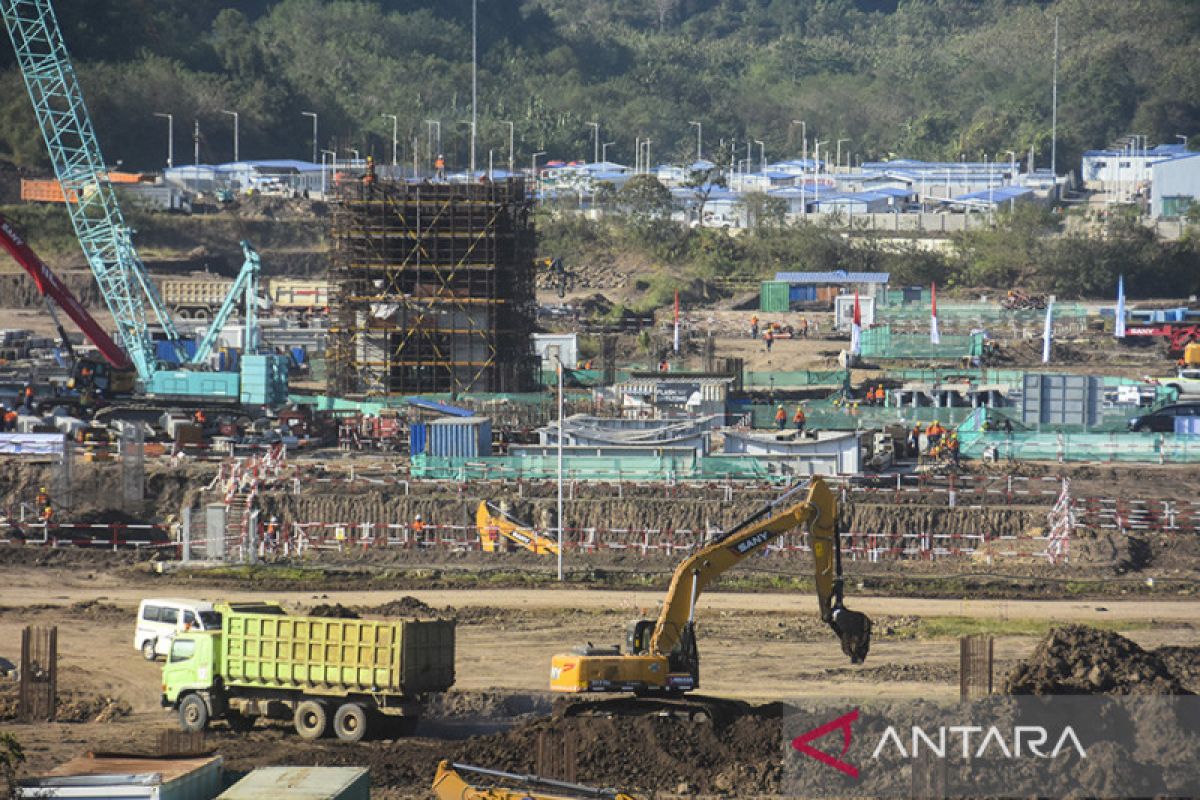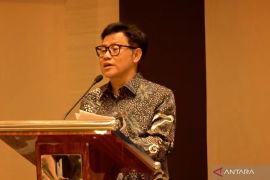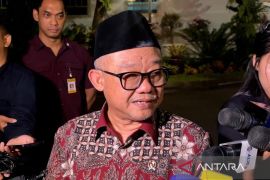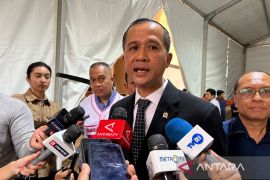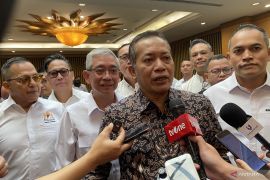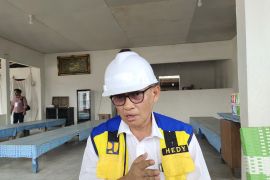The head of state reaffirmed this belief while delivering his speech during the 2023 Annual Session of the People's Consultative Assembly (MPR) and the 2023 Joint Session of the House of Representatives (DPR) and Regional Representative Council (DPD) in Gedung Nusantara, Parliamentary Complex, Jakarta, on Wednesday morning.
The opportunities include the potential for the demographic bonus to peak in the 2030s. By that time, 68 percent of the Indonesian population is projected to be in the productive age.
The demographic bonus is believed to be a key to increasing productivity.
Furthermore, Indonesia can capitalize on its current international trust to achieve the vision. This trust has been garnered through the country's tenacity in affirming its stance on various issues of global interest.
Trust is a determinant of investment appeal. A country needs to have a reliable reputation to draw investors. It is never an easy task to build international trust, and it has become especially difficult amid the current bleak and unstable global conditions.
The International Monetary Fund (IMF) has forecast a gloomy period, with global growth expected to reach just 2.7 percent, which would also affect the investment climate.
Nevertheless, amid such dismal news, the government must not lose its focus on maintaining current domestic conditions, where Indonesia is believed to be enjoying continuous political stability and maintaining beneficial regulations. This positive trend would play a crucial role in drawing investment.
In the regulatory aspect, the government's resolve to get higher investment has been reflected in the issuance of the investment priority list (DPI).
DPI provides investors with comprehensive information on investment sectors in Indonesia, including priority sectors that comprise sectors that are strategic and capital-intensive in nature; focus on exports, research, development, and innovation activities; and also utilize high-level technology.
Another category covers labor-intensive sectors that are dedicated to cooperatives and micro, small, and medium enterprises (MSMEs).
The government will incentivize big enterprises that are willing to partner with MSME players in their surroundings, empowering them in the process. Such a policy is expected to create a fair business climate, both for big and small companies.
Moreover, through the DPI, investors can also scout which sectors in Indonesia have restrictions, namely business fields that require 100 percent domestic capital.
The combination of high international trust and clear regulations has been successful in bumping up investment in the country. According to the Indonesian Investment Coordinating Board (BKPM), the country recorded investment inflows of Rp678.7 trillion (US$44.3 billion) during the first half of 2023.
In fact, investment schemes outside Java Island, totaling Rp354.9 trillion (US$23.1 billion), cornered as much as 52.3 percent of the total investment. The achievement reflects an increase of 16.1 percent year-on-year (yoy) in investment outside Java. Investment realization outside the island was recorded at Rp182 trillion (US$12 billion) in this year's second quarter, translating into an increase of 15.6 percent yoy.
Among non-Java provinces, Central Sulawesi emerged as the region with the highest investment realization of Rp26.6 trillion (US$1.7 billion). However, the value was still below West Java's Rp53.7 trillion (US$3.5 billion). Nationally, West Java ranked first, followed by Jakarta, East Java, and Central Sulawesi.
Furthermore, during the first half of 2023, foreign and domestic investment increased by 17.1 percent to Rp363.3 trillion (US$23.86 billion) and 15 percent (yoy) to Rp315.4 trillion (US$20,71 billion), respectively.
These feats deserve appreciation. The 53-percent share of non-Java regions in Indonesia's overall investment realization demonstrates that the country is on the right track to achieving its vision of equitable development, in accordance with the so-called Indonesia-centric vision.
The trend also indicates that Indonesia will witness more equitable economic development in all its regions compared to in the past few years when investors' eyes remained glued to Java Island. But why Java? There is a simple answer for that: Java has more infrastructure as well as human resources of higher quality and in greater numbers.
Bearing that in mind, investors have tended to choose Java for the sake of cost efficiency. This tendency has led to the impression that the government is placing its development focus on the island.
However, the current administration has been exerting efforts to gradually change that impression and draw more investment to non-Java regions. These efforts have included building roads and toll roads, implementing the sea toll program, improving ports, as well as constructing more airports for increasing connectivity.
Those efforts have played a crucial role in boosting investor confidence in Indonesia. They have started to believe that the government is truly committed to translating its Indonesia-centric vision into concrete action. It is becoming clear to them that the government is aiming to develop new economic growth zones, from which they can reap benefits.
Now, it is a matter of determining how to further spread investment streams to other non-Java provinces besides Central Sulawesi. To that end, related stakeholders need to commit to providing infrastructures that are essential for investment, improving human resource quality, empowering talents from regions, and optimizing the demographic bonus.
Those measures are prerequisites for helping the nation to realize the vision of Golden Indonesia 2045 and making the country one of the world's biggest economies, in accordance with the speech conveyed by President Widodo.
Related news: Indonesia needs structural reform to realize 2045 vision: minister
Related news: Minister to bring investors to help realize Golden Indonesia vision
Translator: Nusarina Y, Tegar Nurfitra
Editor: Tia Mutiasari
Copyright © ANTARA 2023
